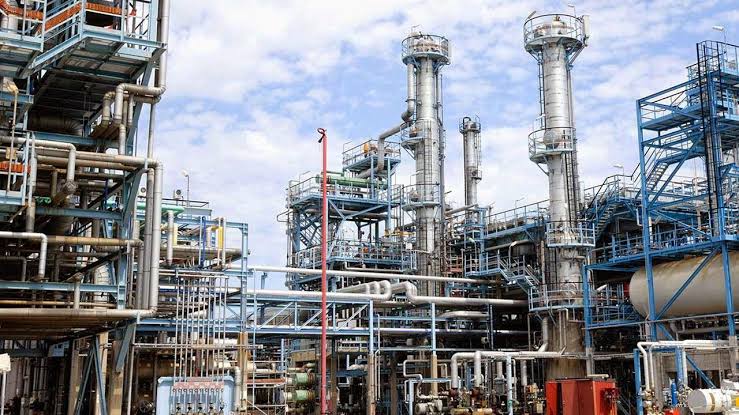
A new report has revealed that the Port Harcourt Refinery, which was commissioned months ago, is still struggling to operate at full capacity.
Despite official claims from the Nigerian National Petroleum Company Limited (NNPCL) that the refinery is fully functional, findings from an on-the-ground investigation suggest otherwise.
The refinery, located in the Alesa-Eleme community of Rivers State, was expected to boost petroleum supply and ease fuel scarcity in Nigeria. However, economic activities around the refinery remain slow, and output levels are far below expectations.
Residents, who once depended on the refinery for their livelihood, have complained about the lack of economic activity, the report by the International Centre for Investigative Reporting revealed. Boma Dokubo, a food vendor in the area, said business has not picked up since the commissioning. She said sales are now low because fewer workers are present.
The Secretary-General of Alesa-Eleme, Timothy Mgbere, also expressed concerns about the refinery’s performance. He revealed that before its decline, the refinery loaded over 100 trucks of petroleum products daily. However, current reports indicate that the refinery is struggling to load even 30 trucks per day.
“If the depot is fully functional, only PMS will load a hundred trucks and above. Currently, the refinery is struggling to load with many marketers unable to access paid products,” he said.
“NNPCL for more than a week now is unable to load 30 trucks (AGO, PMS, DPK) all products put together. How would you tell us it’s 100 per cent functional. We are in the community, and we know what’s happening,” Timothy said.
Findings from the ICIR indicate that the Port Harcourt Refinery has not been able to function independently. Insiders disclosed that the refinery has been relying on Indorama Eleme Petrochemicals Limited to process naphtha, a key crude oil derivative.
A refinery expert, who spoke anonymously, confirmed that the facility lacks the necessary infrastructure to refine crude oil without external assistance.
“You need a superheater to refine crude oil properly. Right now, the refinery is only producing naphtha, and Indorama is helping to crack it into usable petroleum products,” the expert revealed.
“There is a pipeline linking Indorama to the refinery for this process because the refinery’s superheater is not available yet. Until this is fixed, full production will not be possible.”
Recall that in 2021, the Nigerian government allocated $1.5 billion to rehabilitate the Port Harcourt Refinery. The contract was awarded to the Italian company Maire Tecnimont S.p.A, with the promise that the refinery would become fully operational within a few years.
Portharcourt Refining Company Limited (PHRC) is comprised of two oil refineries. The refinery has a combined capacity of 210,000 barrels per day. The old refinery, the one which was commissioned, processes 60,000 barrels per day of TNP- a blend of Medium Nigerian crude Oil.
The NNPCL, in a statement last year, said the refinery was producing straight-run gasoline (naphtha), blended into 1.4 million litres of premium motor spirit (PMS or petrol); kerosene: 900,000 litres; and automotive gas oil (AGO or diesel): 1.5 million litres daily. It was also said to produce low-pour fuel oil (LPFO): 2.1 million litres and liquefied petroleum gas (LPG).
